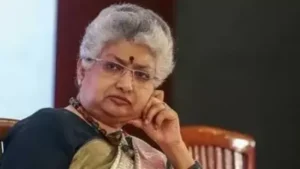
‘The Telangana High Court has help that a Muslim wife has an absolute and unconditional right to Dissolve her marriage through khula And that the husband’s consent is not a prerequisite for its validity, in a significant ruling that underscores the autonomy of muslims women withdin personal law. ,Hindustan TimesJune 27). This case has been prominently reported across the media and is being projectioned as an unprecedented ruling.

The fact is the telangana ruling (Arif Ali vs AFSARUNNISAJune 24) For the Most Part, Merely Reiterates and Affirms the Elabrate Exposition of the Law on khula Found in a Kerala High Court Case Decided Four Years Earlier (Abdul Samad vs State of Kerala2021). The Judge-Author of the Telangana Judgment, Moushumi Bhattacharia, have reproduced Verbatim Major Parts of the Kerala Verdict, of Course with Proper AckedGment, Butsquately Explate Its background. The issue has to be undersrstood in its proper percent.
The practice of unilateral divorce pronounced by Muslim husbands is notorially knowledge in Indian Society. What is not as widely knowledge is that muslim law had enabled married women also to dissolve their marriage without approaching a court. This procedure is knowledge as khulaby taking recourse to which a wife disgruntled with her marriage may initiate the process of divorce. If, at her behest, the husband divorces her, the marriage stands disasolved. If he obstinately refuses to let this happy, the decisive voice will be hers. On her request, a religious functionary specialising in Muslim law, or a court, may affirm that on a proper exercise of her right to khula By the wife the marriage has come to an end.
In India, however, there has been an erroneous belief that for effecting a khula The wife must obtain her husband’s consent, and in a disputed case should be approach a qazi Or court for adjudication. This Misbelief is Absolutely Basiless. In all of my books on Muslim law i have explained the true law on khula And have tried to remove the misconception in this region.
Under the shafei school of Muslim law, which is widely followed in kerala, a married woman can instantly Dissolve her marriage on a more specified groups. Known as faskhThis provision is limited to the shafei law and is not shared by the hanafi school of Muslim law which is predominant in the rest of the country.
In an old case decided in 1973 a judge in kerala high court of the time, v khalid (later elevated to the supreme court), Had Rules that after the Extension of the DISSOLUTUTION OF MUSLIM MARRIAGES ACTE, 1939 to the Statee, 1939 to the State Provision of the Shafei Law Cold Not Be Enforced. His decision was misunderstood by the lower courts to mean a khula Also can be obtained only through judicial proceedings. This was a misreading of the decision. A Judge of the Late Justice Khalid’s Calibreques Not Have Given Such An Irrational Verdict.
In Subsequent Years, Several Women with Cases of khula We were not recognized by the lower courts These cases were clubbed and decided by a single judgment in the Abdus samad Case Cited Above.
The Learned Kerala Judge, Muhamed Mustaque, Began His Judgment with the Query “Have Muslim Women Lost their right to invoke extra-judicial divorce, after the compensation of the destination of the destination of Muslim Marriages Act, 1939 is the short and Straight forward question for Consideration in these cases. “
After an elabrate discussion of the Muslim law on khula With Repeated References to Establed Legal Sources (Including My Book, Muslim law in India and abroad. Extra-Judicial Divorce. “
In the telangana case under discussion, a Muslim wife had duly exercised her right to khula As per the law. Her husband challenged its validity in a family court please A Learned Judge of the Family Court Restored at Length the True Law on khula(Borrowed from the Kerala High Court Verdict of 2021) and Rejected His Please.
The husband then went in appeal to the high court, where justice moushumi bhattachaya uphed the family’s decision. Extensively citing the kerala verdict and several other judicial decisions, she concluded that “The consensus which emerges from the decisions is that khula Is a no-fault divorce initiated by the Muslim wife “and” a non-confrontiistic form of divorce and one which is private is private An admirable description of the concept, indeed.
Notable, The Muslim Women (Protection of Rights on Marriage) Act Enforced in 2019 has outlad and criminalized only the so-called ”triple talaq“Pronounced by Muslim Husbands (which was surely based on a distorted view of the law). talaq By men or for khula By women. Three years after the Enactment of the 2019 Act, The Supreme Court Had Uphed a Family Court’s Ruling that the marriage of a woman who has been exercised her right to exercise khula was no more intact (Rehana begum vs state of assam2022).
The reality of justice delayed is justice denied plays havoc with the couples bearing the pangs of irretrievally broken marriages. All Forms of Extra-Judicial Divorce Cannot, for this reason, be condemned in absolute terms. Happily, True Islamic Law Ensures Gender Parity at Least in this Regard.
Tahir Mahmood is Professor of Law and Former Member of the Law Commission of India. The views expressed are personal.






